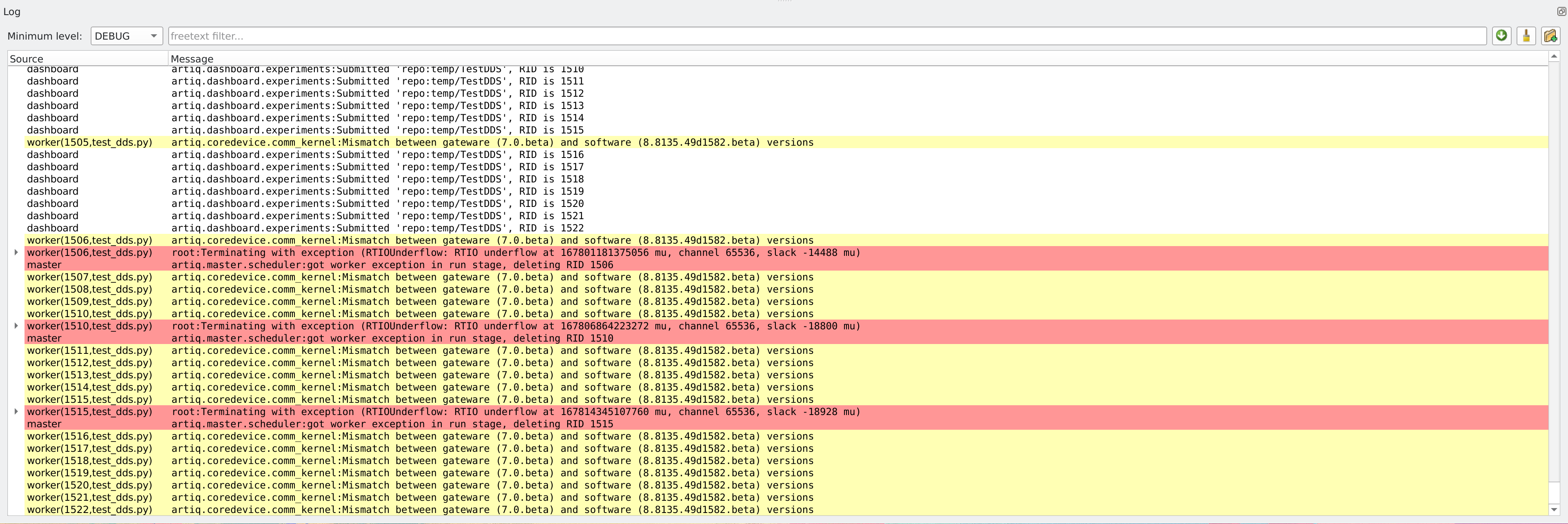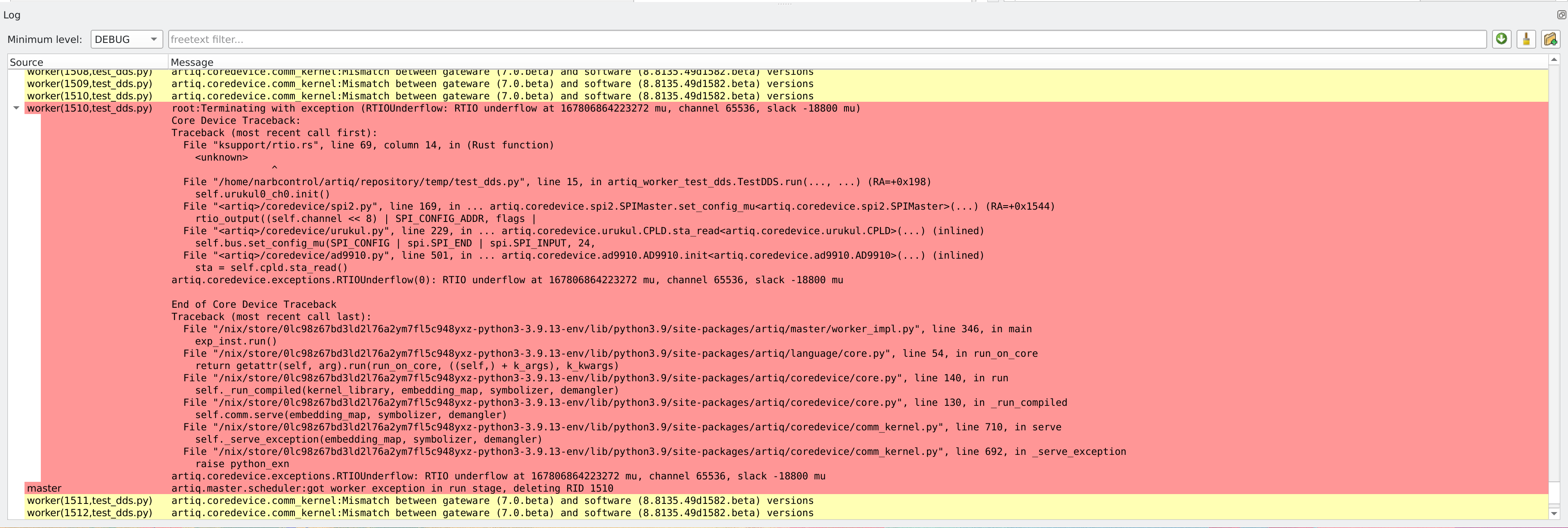Recently I encountered a weird problem that random RTIO underflow occurs in dds.init() function. I finally figured out that it is due to the function ad9910.set(). The sample code below will sometimes cause a slack of around -18μs in dds.init() if I submit this experiment many times. And adding delay before dds.init() doesn't help. Is there any way to solve this?
from artiq.experiment import *
class TestDDS(EnvExperiment):
def build(self):
self.setattr_device("core")
self.setattr_device("urukul0_ch0")
self.setattr_device("urukul0_cpld")
@kernel
def run(self):
self.core.reset()
self.urukul0_cpld.init()
delay(10 * ms)
self.urukul0_ch0.init()
delay(10 * ms)
self.urukul0_ch0.sw.on()
delay(10 * ms)
self.urukul0_ch0.set(1 * MHz)


 . This time the error log says
. This time the error log says